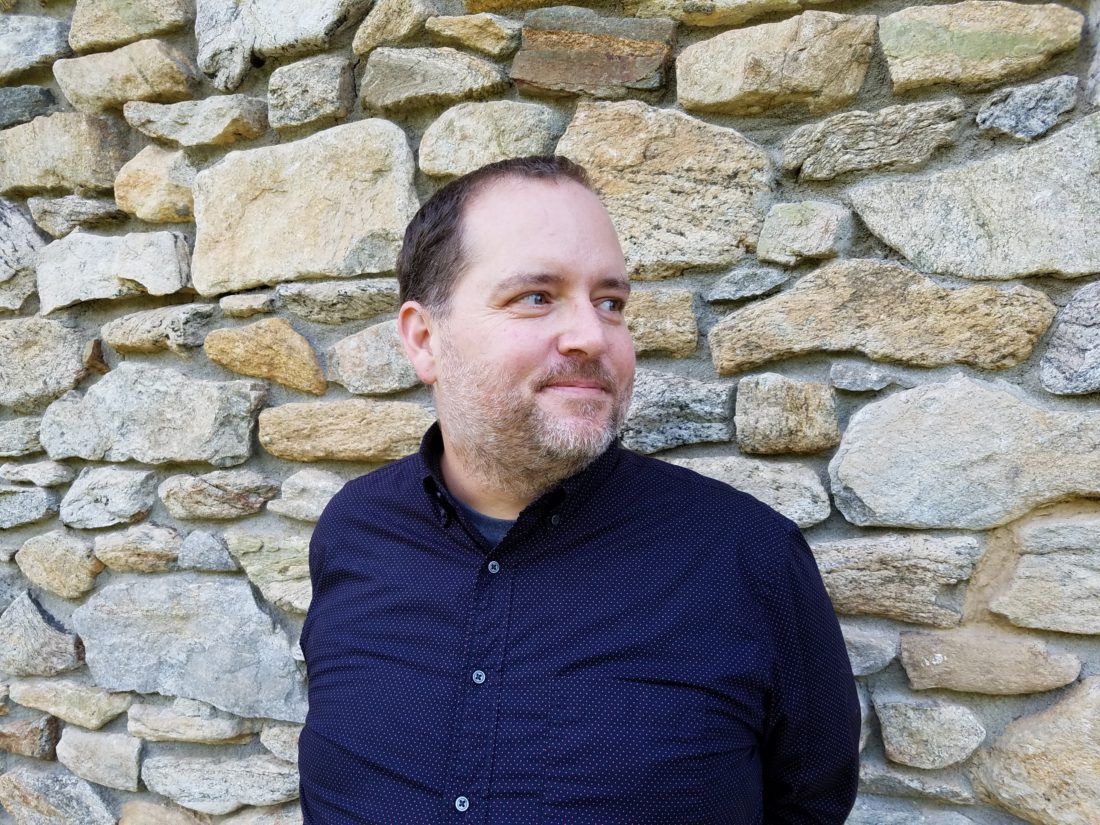The students in Jason Carter’s science classroom at Evergreen Community Charter School regularly deal with some pretty scary topics. Air pollution, water quality and natural resource depletion all make their way onto his curriculum. And if that weren’t enough, his eighth-graders have to handle zombies.
Carter brings in the literature of the living dead as a way to teach infectious disease, one of North Carolina’s essential science standards. “Usually the science in that science fiction, regardless of how fictional the disease, is really sound,” he explains. His students take on the role of public health experts as they draw up fact sheets about zombification and give presentations about how society should prepare for and prevent the coming crisis.
That creative instructional attitude recently earned Carter the honor of being named a Teacher Ambassador by the California-based National Center for Science Education. Along with nine colleagues from across the country, he will help develop, test and deploy a curriculum covering a subject that’s arguably even more frightening than zombies: climate change denial.
“We live in a generation where, if you don’t like what the science is saying, it is perfectly acceptable to just publicly denounce it, regardless of whether it’s true or not,” Carter says. “Getting students to be critical of that and really understand science itself as a way to evaluate truth is a big deal.”
It’s a problem that goes beyond presenting raw data, but it’s one Carter’s background has equipped him to tackle. In college, the science teacher majored in English and minored in both women’s studies and math. He then spent some time in the business world before entering education, where he has remained for the past 18 years.
“Nothing exists in isolation in the real world; we don’t use skills independently of each other or independently of context,” Carter says about the philosophy he’s developed over his career. “In science, I can bring in math and history and literature — I can bring in the process of thinking, not just what to think about, all in one subject.”
Brad Hoge, the NCSE’s director of teacher support, notes that Carter is the first teacher ambassador his organization has chosen from a charter school. He says Evergreen’s focus on holistic and environmental education, as well as Carter’s enthusiastic embrace of that focus, made the teacher stand out from the more than 60 candidates who applied to the program.
Hoge also expects that Carter’s long-standing relationships with the region — he’s taught at Evergreen for over 13 years and earned a master’s degree from UNC Asheville in 2017 — will help spread the NCSE climate curriculum to teachers in rural Western North Carolina and Tennessee.
“Rather than trying to say, this is NCSE doing this or a science educator from a university, it’s specifically a teacher in their area that knows the area,” Hoge explains. “We’re hoping that makes a big difference.”
Carter recognizes that the politicization of climate change has made the topic a contentious issue in many communities. Key to defusing that tension, he says, is building communication and empathy into lesson plans. Scientists too often place themselves “on a pedestal,” he argues, and fail to consider the way in which they deliver their findings.
“When you can bring in personal stories of people who are affected by the issue or by the science, then you get others to see it on somebody’s personal level,” Carter says. “Then, they’re much more inclined to not only understand, but also be a part of what makes it better.”
Empathy comes through in a different way with one of Carter’s keystone lesson plans. As in a Model U.N., he explains, students represent the countries of the world, each making concessions and deals in an effort to address climate change. By plugging the results of these deals into a climate model, the students soon come to realize that big players such as the United States and China have a disproportionate impact, while the developing countries that are most impacted by climate change have comparatively little control of the global situation.
“When, say, all of Central America agrees to a change, it’s just a drop in the bucket,” Carter says. “They really start to see that it’s not an equal playing field in lots of ways and that political negotiation and commitment is really hard to navigate.”
But empathy, Carter stresses, can also generate hope. He points to a book he teaches his seventh-graders, The Boy Who Harnessed the Wind, about a Malawian schoolboy who built an electric wind turbine for his village using only salvaged materials and a physics textbook. The story inspires his students to think about tackling difficult problems at the local level.
“Empowering them at a young age, when they still really want to make things better, hopefully pays off for decades to come,” Carter says. “Anybody who’s worried about the world just needs to spend some time around some middle schoolers.”



Before you comment
The comments section is here to provide a platform for civil dialogue on the issues we face together as a local community. Xpress is committed to offering this platform for all voices, but when the tone of the discussion gets nasty or strays off topic, we believe many people choose not to participate. Xpress editors are determined to moderate comments to ensure a constructive interchange is maintained. All comments judged not to be in keeping with the spirit of civil discourse will be removed and repeat violators will be banned. See here for our terms of service. Thank you for being part of this effort to promote respectful discussion.